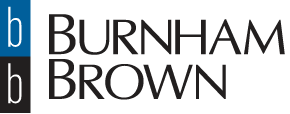February 16, 2010
Baker v. National Interstate Ins. Co., 180 Cal.App.4th 1319 (2009)
Forty years ago, in Insurance Co. of North America v. Electronic Purification Co., 67 Cal.2d 679 (1967) the California Supreme Court analyzed the phrase "products hazard" which included both "products" and "completed operations" and concluded that a commercial general liability policy did not exclude coverage for a claim arising from the insured's rendition of a service which was only remotely related to a product.
In Baker v. National Interstate, the California Court of Appeals held that the term "products-completed operations hazard" in a commercial general liability ("CGL") policy is unambiguous and excluded coverage for damages arising from a bus company insured's inspection services as they were a work-related "completed operation," regardless of whether those inspection services were related to a product.
The insured, Four Winds Day Camp, Inc. owned and operated a school bus transportation company. Four Winds sold one its buses to Precise Transportation. Subsequent to the sale, Four Winds performed the legally required 45 day/3,000 mile inspection on the bus it sold to Precise Transportation. In addition to several other repairs, it replaced the bolts to the driver's seat. An accident later occurred when a driver for Precise Transportation collided with a pickup truck while driving the bus purchased from Four Winds. The driver of the bus suffered fatal injuries when the driver's seat broke loose from the floor, and she was ejected through the front windshield.
The bus driver's family, the Bakers, filed a wrongful death action against Four Winds and several other defendants. The trial court held that Four Winds was negligent and entered judgment for the Bakers in the amount of $13,776,201. In accord with a pretrial "high-low agreement" between the Bakers and Four Winds, a final judgment was entered in favor of the Bakers and against Four Winds for $9 million, plus costs and interest.
American National Fire Insurance Company ("American") issued a one year CGL policy to Four Winds. The policy included an endorsement page which advised Four Winds that it modified the policy by excluding "bodily injury" or "property damage" included within the "products-completed operations hazard" as defined by the policy. The CGL policy contained the standard Insurance Services Office ("ISO") 3-part definition of "products-completed operations hazard" and standard definitions of "your product" and "your work".
After American declined coverage, the Bakers and Four Winds entered into a covenant not to execute in exchange for Four Winds' assignment of its rights against American. The Bakers, as assignees, filed the instant coverage action alleging breach of contract and breach of the covenant of good faith and fair dealing. Four Winds also filed suit in its own name seeking recovery under California Insurance Code section 11580(b) (2).
The trial court entered a final judgment against American and in favor of the Bakers in the amount of $11,958,326.90. The Court of Appeals reversed, finding the language of the exclusion in its overall presentation is not ambiguous, further holding that the exclusion for claims arising within the meaning of the "Products-completed operations hazard" equally unambiguous, and plainly applied to the Bakers' underlying wrongful death lawsuit.
The American policy and other standard ISO forms define "Products-completed operations hazard" to include all "bodily injury" and "property damage"arising out of "your product" or "your work" The use of the disjunctive conjunction "or" unambiguously advised Four Winds that a claim alleging bodily injury arising either from Four Winds' "product" or its "work" was excluded. By employing the disjunctive conjunction "or" between the words "your product" and "your work," the policy advised and warned Four Winds that the "hazard" which was excluded from the policy's coverage was the hazard arising from either its "products," once they were out of Four Winds' possession, or from its "work," once that work was completed and put to use away from its premises. The Court frankly stated that it simply saw "no other reasonable reading that can be given to the policy language."
The Court's analysis is equally applicable construction defect actions where an additional insured seeks coverage, but such coverage is specifically limited by form to "ongoing operations." The coverage issue usually involves analysis of whether the property damage or bodily injury at issue is arising out of the named insured's "ongoing operations." The Baker court analyzed the terms of the policy and finds that an insurer may properly limit coverage, through the "products-completed operations hazard" language, to ongoing operations. The Baker court's analysis will be useful in determining an insurer's obligation to provide coverage when an issue involves the "products-completed operations hazard" language.
Michelle Meyers' practice focuses on insurance coverage analysis and advice, with an emphasis on insurance coverage litigation. She can be reached at 510.835.6703 or mmeyers@burnhambrown.com.

